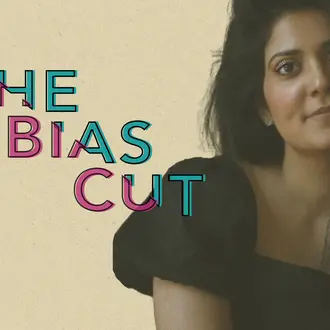Gender
How 3 female leaders are breaking barriers in their industries
Managers from Salesforce, RSM, and Research Grid share how they overcame career hurdles and what they’re doing to be inclusive allies.
Stephanie Smith is a self-admitted practical thinker, so when one of her mentors at RSM told her to apply for the global accounting firm’s Industry Eminence Program when it first rolled out, Smith said she wasn’t ready. Her mentor, however, insisted that she try for the opportunity and see what might happen.
“She knew that once I accepted the idea in my head, I was going to do it,” said Smith during a recent MIT Sloan Executive Education webinar, Breaking Barriers and Building Allies. “I always thank her for dreaming on my behalf.”
Smith was one of several managers who shared their experiences of overcoming challenges with the help of allies and detailed what they’re doing to help those behind them.
Thanks to her mentor and other career allies, “how I measure myself, how I look at how prepared I am for opportunities, has totally shifted and totally changed,” Smith said. “I’m really appreciative that they’ve helped teach me how to dream.”
Here’s some more advice that the panelists shared.
Reframe differences as personal advantages
What should have been a celebration for Carla Silvado when she joined Salesforce in 2019 ended up serving as an excuse for self-inflicted negative thoughts.
“I am Brazilian, so moving to the U.S., joining a big corporation — Salesforce was my dream job. But I also had imposter syndrome weighing on me,” said Silvado, director of professional services at the software company. “I have an accent, and I don’t have a tech background. I went to school for international affairs.”
Silvado climbed from her first Salesforce role as principal customer success architect to senior program architect, then to her current director position. Despite her insecurities, Silvado said, she eventually overcame them by reframing her differences not as bad features that she needed to adapt but rather as qualities that helped her stand out.
“I am Latina and a woman in tech, so not a lot of rooms have many people like me,” Silvado said. “I stopped seeing that as something that I needed to overcome and instead [saw] that this is the value that I bring to this table.”
That value comes in the form of a fresh perspective thanks to a person’s unique background, race, or gender.
Emphasize common ground in business partnerships
Amber Hill learned that getting over imposter syndrome requires changing the narrative around yourself and that “there’s no room that you’re not qualified to be in.”
Hill is the founder and CEO of Research Grid, a company that uses artificial intelligence and process automation to shorten clinical trials. She said that most of the time when she walks into an investor meeting, it’s with someone “who looks different from me, who identifies in a different way, who navigates the world in a different way.”
“You have got to find commonalities, whether it is education, or your approach to something, or your grit,” she said.
Hill said she also tries not to let the gender imbalance eclipse her mission. When the pandemic started, the company’s software attracted a lot of attention, but then all anyone wanted to talk about was the novelty of her being a female founder.
While it’s important to acknowledge gender imbalances such as the amount of money being invested in male versus female founders, Hill said, “I don’t think that you can hold on to that or make excuses about it.”
Be brave when networking
Along with pushing her to dream bigger, Smith’s mentor shared her networks and knowledge by bringing Smith to large networking events, where there’d be a ballroom of 500 people she didn’t know or didn’t look like.
“I’m in this industry that is very, very male dominated,” Smith said. What’s more, “I didn’t have the same background as them.”
But knowing at least one or two people in the room helped her have the courage to make conversation.
“That made all the difference in the world to me,” Smith said of the experience of being included. That sense of inclusion is something she tries to demonstrate to her networks inside and outside her firm. “That’s kind of my goal: How can I do that? How can I pay that forward?”
Read: Women and leadership: How to have a healthy relationship with power




